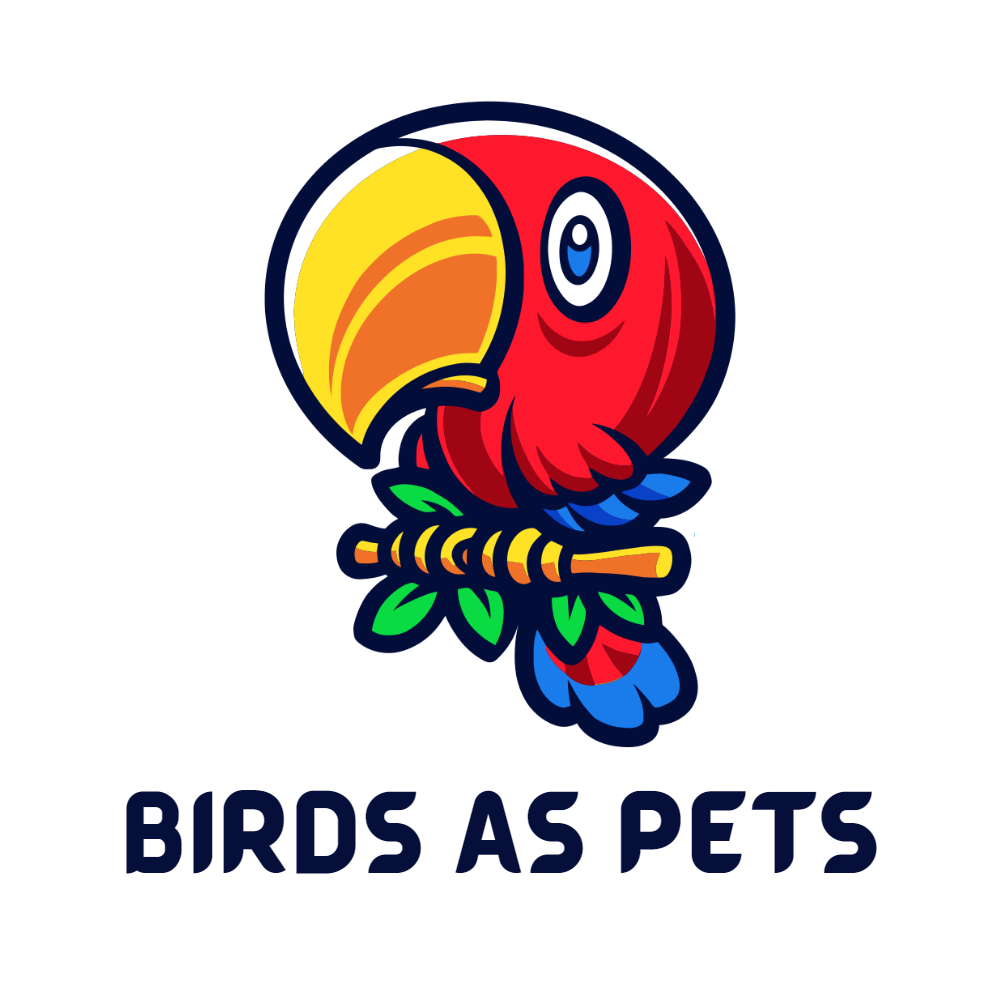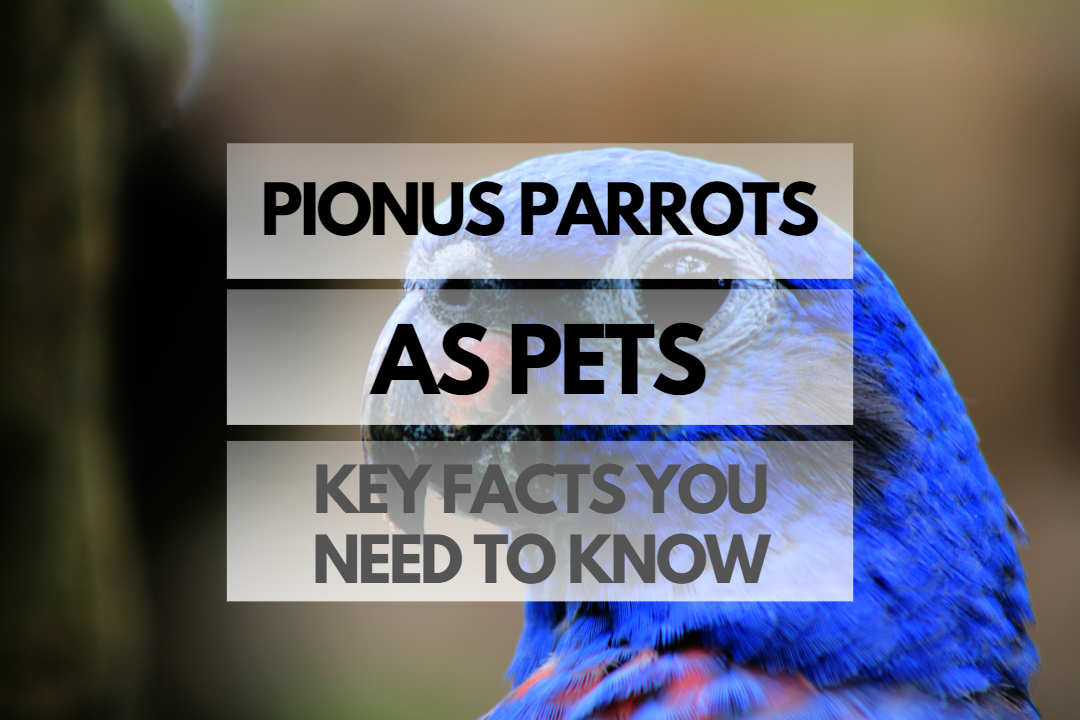Considering a Pionus Parrot as a pet? These charming birds have a lot to offer, with their captivating personalities and beautiful colors. In this guide, we’ll explore everything you need to know about Pionus Parrots as pets, from their natural habitat to their care requirements and costs. So, let’s dive in!
Quick Reference Table: Pionus Parrots Facts
| Fact | Details |
|---|---|
| Size | 10-12 inches (25-30 cm) in length |
| Weight | 200-275 grams |
| Life Expectancy | 25-40 years |
| Temperament | Intelligent, social, and affectionate |
| Colors | Blue, green, bronze, white, and various shades |
| Talking Ability | Moderate |
Where Do Wild Pionus Parrots Live?
Wild Pionus Parrots can be found throughout Central and South America, from Mexico to Argentina. They inhabit a variety of habitats, including tropical forests, savannahs, and mountainous regions. Pionus Parrots are generally social and often seen in small flocks in the wild.
Pionus Parrots Lifespan: How Long Do They Live as Pets?
Pionus Parrots can live between 25 to 40 years in captivity when provided with proper care, nutrition, and living conditions. As a potential Pionus Parrot owner, it’s essential to understand that these birds require a long-term commitment and significant time investment to ensure their well-being and happiness.
Are Pionus Parrots Good Pets?
In general, Pionus Parrots make excellent pets, thanks to their affectionate, intelligent, and social nature. They form strong bonds with their owners and can be quite entertaining with their playful antics. Pionus Parrots are also known for their beautiful plumage and moderate talking ability, adding to their overall appeal as pets.
Are Pionus Parrots as Pets Good for Beginners?
Pionus Parrots can be a good choice for beginners, as they are typically less demanding than other parrot species, such as African Greys or Macaws. They are also generally quieter and more adaptable, making them easier to integrate into a home environment. However, it’s still crucial for first-time bird owners to thoroughly research Pionus Parrot care requirements and be prepared for the long-term commitment.
Are Pionus Parrots Easy to Care For?
While Pionus Parrots are relatively low-maintenance compared to other parrots, they still require proper care, including a balanced diet, spacious living quarters, and regular interaction to ensure their well-being. Taking care of a Pionus Parrot’s needs can be time-consuming, but the reward of a happy, healthy bird is well worth the effort.
Pionus Parrots Pros and Cons
| Pros | Cons |
|---|---|
| Affectionate and social | Require a long-term commitment |
| Quieter than other parrots | Need regular interaction |
| Beautiful plumage | Can be prone to certain health issues |
| Intelligent and trainable | Initial and ongoing expenses |
Pionus Parrots Price and Costs
The cost of a Pionus Parrot can range from $500 to $1,500, depending on factors such as the bird’s age, color, and the breeder’s reputation. In addition to the initial cost, there are expenses for a spacious cage, toys, perches, and regular veterinary care. Ongoing costs include a healthydiet, supplements, and replacement toys and accessories.
Where to Buy Pionus Parrots
Pionus Parrots can be purchased from reputable breeders, pet stores, or avian rescue organizations. It’s essential to do thorough research and ensure that the source is knowledgeable about proper Pionus Parrot care and breeding practices to ensure you’re getting a healthy and well-socialized bird.
Caring for Pionus Parrots
Pionus Parrots Food
A balanced diet is crucial for a Pionus Parrot’s health and well-being. Their diet should consist of high-quality pellets, fresh fruits and vegetables, and a small amount of seeds or nuts. It’s essential to provide a variety of foods to ensure they receive all the necessary nutrients and avoid feeding them an all-seed diet, which can lead to health issues.
Health and Common Issues
Pionus Parrots are prone to certain health issues, including respiratory problems, feather plucking, and obesity. Regular veterinary check-ups, proper nutrition, and a clean living environment can help prevent many of these issues. It’s essential to monitor your Pionus Parrot’s health closely and seek veterinary care if any signs of illness are observed.
Signs of Healthy Pionus Parrots vs. a Sick One
| Healthy Pionus Parrot | Sick Pionus Parrot |
|---|---|
| Bright, clear eyes | Discharge or cloudiness in eyes |
| Smooth, well-groomed feathers | Ruffled, plucked, or damaged feathers |
| Active and alert | Lethargic or unresponsive |
| Normal droppings | Diarrhea or abnormal droppings |
| Maintains a healthy weight | Weight loss or obesity |
If you’re considering bringing a Pionus Parrot into your family, it’s important to think about pet insurance. Pet insurance can help cover the costs of unexpected veterinary bills, ensuring that your feathered friend receives the best care possible. Some insurance providers offer specific policies for exotic birds like Pionus Parrots, so be sure to research and compare plans to find the best coverage for your pet.
Personality and Behavior
Pionus Parrots are known for their gentle, laid-back personalities. They tend to be less demanding and noisy compared to other parrots, which makes them ideal companions for those looking for a more relaxed bird. Their easy-going nature also means they’re generally less prone to behavioral issues such as feather plucking and aggression. However, like all parrots, Pionus Parrots still require plenty of mental and physical stimulation to thrive, so be prepared to provide an enriching environment and plenty of interaction.
Are Pionus Parrots Social?
Pionus Parrots are social creatures that enjoy spending time with their human families. They’re not as cuddly as some other parrot species, but they do appreciate regular interaction and socialization. It’s important to provide your Pionus with plenty of opportunities for bonding, playtime, and training to keep them happy and well-adjusted.
Speech and Noise of Pionus Parrots
While Pionus Parrots are not known for their exceptional talking abilities, they can learn to mimic a limited number of words and phrases. Their voices tend to be quieter and less clear than other talking parrots, but their soft, gentle vocalizations can be quite endearing. Pionus Parrots are generally less noisy than other parrot species, making them a good choice for those who prefer a quieter companion.
Similar Species to Pionus Parrots
There are several species within the Pionus genus, including the Blue-headed Pionus, White-crowned Pionus, and Bronze-winged Pionus. Each species has its own unique appearance and traits, but they all share similar temperaments and care requirements. If you’re interested in Pionus Parrots, it’s worth exploring the different species to find the perfect match for your family and lifestyle.
Can Pionus Parrots Live With Other Pets and Birds?
Pionus Parrots can often coexist peacefully with other pets if introduced properly and monitored closely. However, it’s important to remember that individual personalities and temperaments can vary, so it’s not guaranteed that your Pionus will get along with other pets. When introducing a Pionus to other birds or animals, always do so gradually and with close supervision. Make sure each pet has its own space and never leave them unsupervised together until you’re confident that they’re comfortable with one another.
Are Pionus Parrots Legal to Have as Pets?
In most areas, Pionus Parrots are legal to keep as pets. However, it’s essential to check your local laws and regulations, as some regions may have restrictions on keeping exotic birds. Additionally, make sure the Pionus Parrot you’re considering has been bred in captivity and not taken from the wild, as this is not only illegal but also detrimental to wild populations.
Additional Resources
- The Complete Guide to Pionus Parrots by Sarah Martin
- Pionus Parrots Facebook Group
- ParrotForums.com Pionus Section
- Ecology and Behaviour of the Pionus Parrots – ResearchGate
FAQ for Pionus Parrots as Pets
Do Pionus Parrots talk?
Yes, Pionus Parrots can learn to talk, but their vocabulary is usually limited compared to other parrot species. Their voices are typically quieter and less clear than other talking parrots.
Are Pionus Parrots suitable for families with young kids?
Pionus Parrots can be well-suited for families with young kids due to theirgentle and easy-going nature. However, it’s essential to teach children how to handle and interact with the parrot safely and responsibly to ensure a positive experience for both the bird and the kids.
Can Pionus Parrots be trained?
Yes, Pionus Parrots can be trained to perform various tricks and behaviors using positive reinforcement techniques. They may not be as quick to learn as some other parrot species, but their intelligence and eagerness to please make them enjoyable training partners.
How do I know what gender Pionus Parrots are?
Sexing Pionus Parrots can be challenging based on their physical appearance alone. The most accurate method for determining the gender of a Pionus Parrot is through DNA sexing, which involves sending a feather or blood sample to a lab for testing.
How long do Pionus Parrots live?
With proper care, Pionus Parrots can live for 25 to 40 years, depending on the species and individual bird. Providing a balanced diet, a clean and safe environment, and regular veterinary care can help ensure a long, healthy life for your Pionus Parrot.
What should I feed my Pionus Parrot?
A balanced diet for a Pionus Parrot should include a high-quality pellet or seed mix designed for parrots, along with a variety of fresh fruits and vegetables. It’s important to avoid feeding your parrot foods high in fat, salt, or sugar, as well as foods that are toxic to birds, such as avocados, chocolate, and caffeine.

